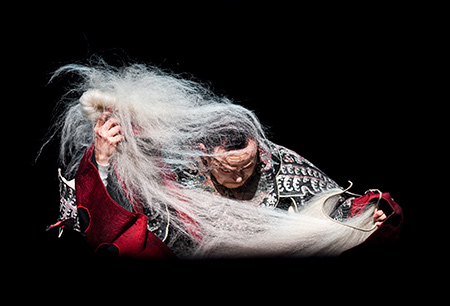Curatorial Statement – King Lear
January 03, 2013
By Norman Armour, PuSh Festival Executive Director
It is with great anticipation that I look forward to the PuSh Festival’s presentation of King Lear. This landmark production of Taipei’s Contemporary Legend Theatre marks the first time that PuSh has presented a Taiwanese work. And like so much of the performing arts in Taiwan, as I discovered in a recent trip to Taipei, the artistry of creator/performer Wu Hsing-Kuo reflects a startling combination of new and old forms, an explosive and unforgettable staging, infused with a virtuosity and technical rigour that is beyond compare.

Peking or Bejing Opera is an art form that is very much in need of a new audience. Wu has been called by some a betrayer of the institution of Peking Opera. Ironically, King Lear was betrayed by his closest family members. Does not any new art form always begin with some sort of betrayal of another? We sometimes to use the word “vision” to describe a successful form of betrayal. Some people think that Wu not only shocked the world of Peking Opera but also shocked the West with his interpretation of the Shakespeare’s magnum opus.
Presenting King Lear has been a long time coming and long over due. A long time coming, given that I first learned of the production many years back from a trusted colleague Elizabeth Walsh of Tasmania. Long overdue, given that this is the first work in Mandarin that the PuSh Festival has presented.
PuSh prides itself on the art of organizational partnership. King Lear brings us together with Charlie Wu and the Asian-Canadian Special Events Society, producers of TaiwanFest and LunarFest. The work of Charlie and his team are well known to many—both Chinese and non-Chinese speaking—residents of the British Columbia’s lower mainland. No wonder—there are over 250,000 people in Vancouver’s metropolitan area that are ethnic Chinese.
In the end, exemplary art is exemplary art—in any language, from any culture. Wu Hsing-Kuo is a master. And like Peter Brook, he has been drawn into the vortex of the human questions, personal obsessions, political vexations, interpersonal dilemmas, spiritual anguish and existential quandaries at the heart of King Lear and other works of Shakespeare’s canon.